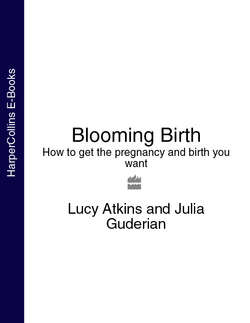Читать книгу Blooming Birth: How to get the pregnancy and birth you want - Lucy Atkins - Страница 66
Losing control and why it can be helpful
ОглавлениеMy experiences of childbirth were so different that it’s hard to imagine they involved the same body. From Izzie’s caesarean to Sam’s vaginal birth and Ted’s homebirth, my labours were virtually unrecognizable to me each time. Midwife Jenny Smith likes to remind women that this is because ‘there are three of you – you, your partner and your baby – and you’re in this together.’ There’s a lot you can do to influence this dynamic, but ultimately if your baby decides sometime during labour (or even before) that she’s unhappy, there is little you can do but accept it and change your plans accordingly. As Jenny Smith puts it, ‘Your baby’s brain, and the rest of her life, is more important than your birth plan.’
Perhaps the first thing to accept then, about childbirth, is that there are certain things you cannot completely control:
When labour will start
What position your baby will be in
Whether you, or your baby, will develop an unforeseen medical complication
Whether you will need medical intervention or drugs.
Even the most straightforward birth involves an unprecedented relinquishing of bodily control. Unlike most things in life there’s no going back if you decide labour has all been a terrible error. You can’t stop the contractions because you don’t like them, there are no guarantees that your efforts will lead you exactly where you want to go, and there are no meaningful ‘standards’ by which to measure yourself.
This is worth embracing if you possibly can: actively losing control – at least of your conscious, rational brain – can be a good thing in childbirth. It allows your body to really get on with giving birth. In the final stages of producing Ted, my third baby, I felt like there was some huge force field coursing through my body, ushering him out of me. I just had to surrender to it. This kind of experience, if you’re used to calling the shots, can be unsettling to say the least – and deeply shocking if you’re not prepared for it.
This loss of control turns many sorted, empowered women into fatalistic loons when it comes to childbirth. You’ll hear women who mastermind multimillion pound deals, fire and hire staff, make momentous professional decisions and run their families like clockwork, tell you that birth is all about ‘luck’ and there’s nothing you can do with the ‘cards you’re dealt’.
This is not wholly true. Yes, certain aspects of birth cannot be controlled. And yes, your options are limited somewhat if your baby really does want to enter the world bottom first; or if you develop pre-eclampsia or some other medical complication. But you can exert a vast amount of influence over the hundreds of variables that will make up your so-called ‘birth experience’. Your willpower, endurance, courage, confidence and determination can make a huge difference not just to what happens during childbirth, but how you handle the more unforeseen aspects of it. The choices you make – in advance and while giving birth – the fears you master, the facts you learn, will also make an enormous difference to the outcome. We’ve become deeply disempowered about birth and it’s time to wake up to this. Instead of thinking ‘there’s nothing I can do’, you should be preparing for childbirth as if it’s the expedition of your life. The sum of these preparations is what will make your birth acceptable, bearable – and maybe even fantastic. The birth you want, in short, is one you’re coping brilliantly with. And you’re more likely to cope brilliantly if you understand the basics about what is happening to you.
